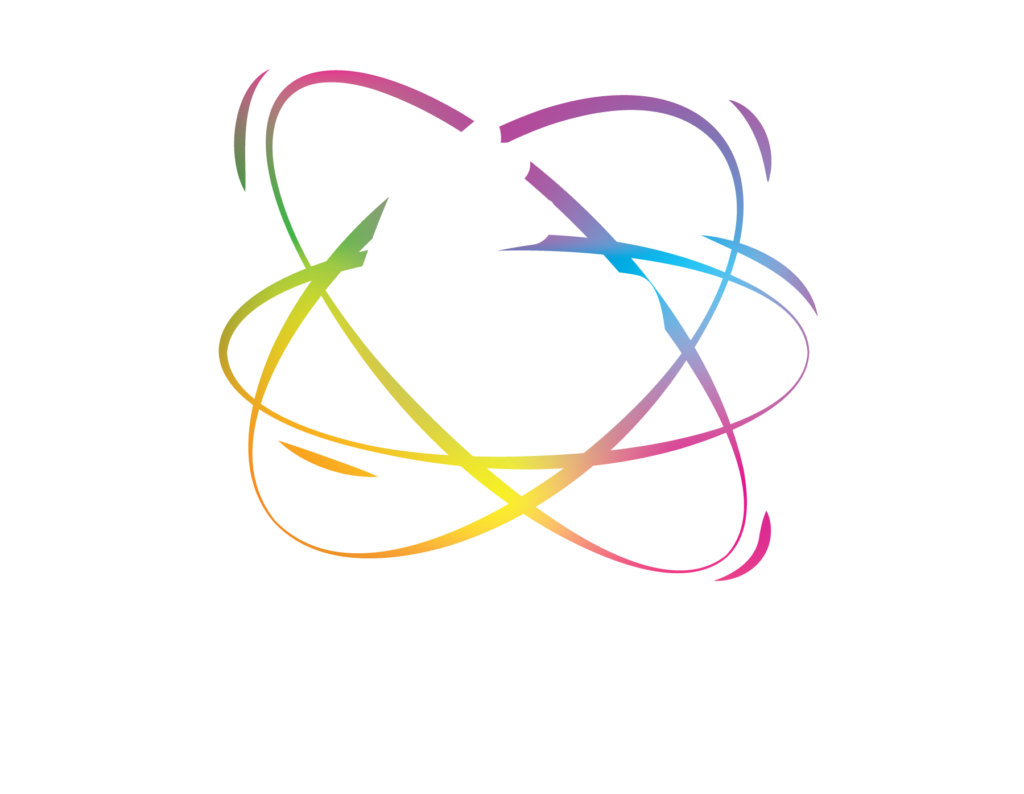ASL STEM News
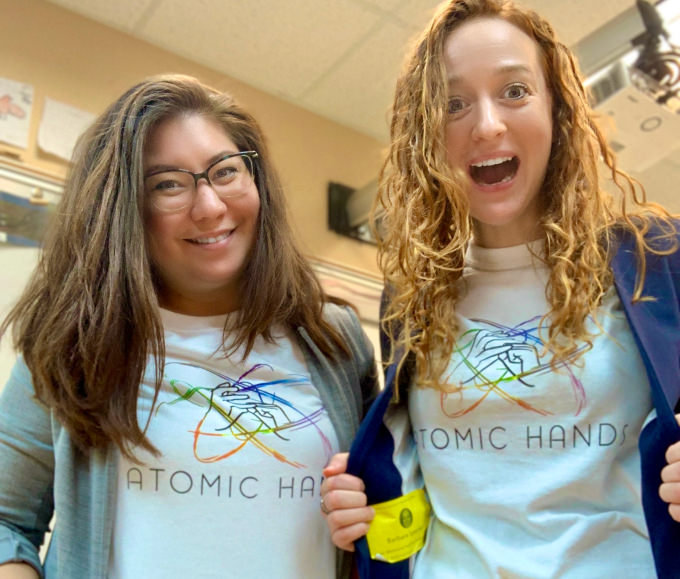
Atomic Hands is Increasing Accessibility in STEM Fields!
Meet Dr. Alicia Wooten and Dr. Barbara Spiecker, two deaf scientists making a change in accessibility for people who are deaf or hard-of-hearing. They founded Atomic Hands to create a community for deaf scientists, encourage use of American Sign Language, and foster curiosity in the next generation of STEMists.
Science Naturally is proud to be partnering with Atomic Hands to create ASL STEM Storybooks, blending ASL storytelling and picture books to enhance accessibility and engagement in learning for individuals, schools, libraries, and beyond.
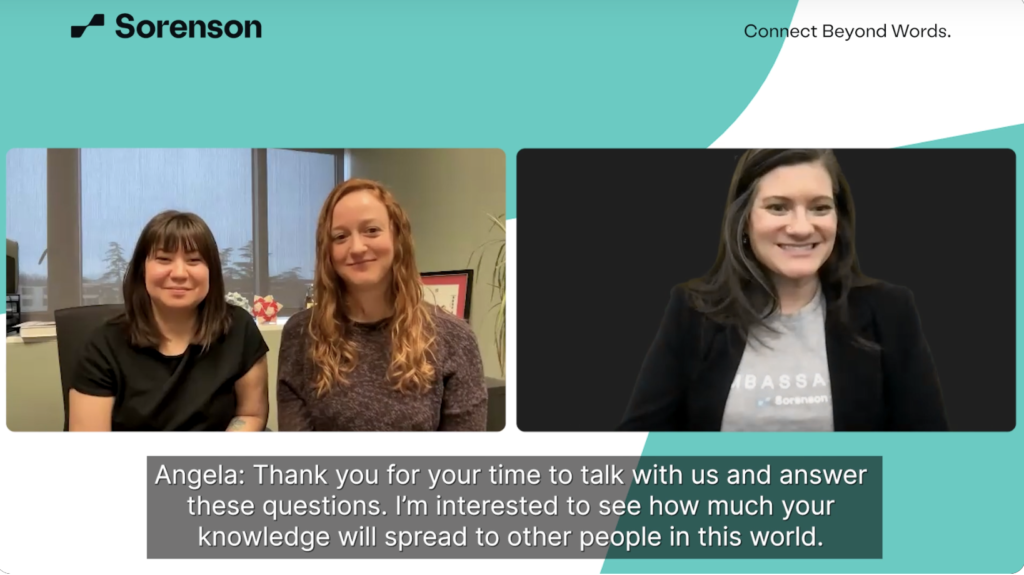
Ever needed sign language for STEM vocabulary? The founders of Atomic Hands had the same need, so they did something about it.
Dr. Alicia Wooten and Dr. Barbara Spiecker met as students at RIT. As they went on to earn their masters’ and doctorates, they realized that there was a need for signs in American Sign Language (ASL) for Science, Technology, Engineering, and Mathematics topics.
After they went to a Deaf Academics Conference in Europe in 2017, they decided that instead of just talking about the need for those signs, they would act. They founded Atomic Hands and built their website to include signs for STEM vocabulary, videos explaining STEM concepts, and storybooks for STEM in ASL.
They also collect STEM news, events, a list of STEM professionals for networking, and host workshops. To get involved and start learning about Deaf resources in STEM, head to Atomic Hands.
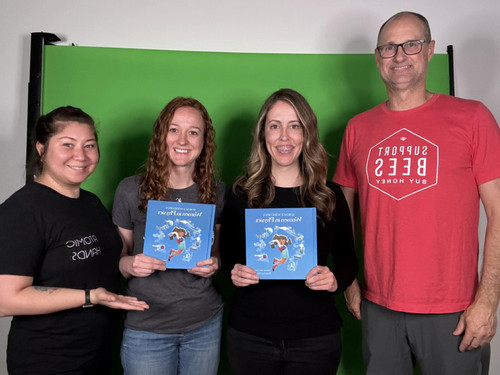
UNF associate instructor partners with organization to inspire curiosity in STEM through American Sign Language (ASL)
Michael Stultz, associate instructor at the University of North Florida, is enhancing STEM education for the Deaf community through his work with Atomic Hands. This mission-driven organization, co-founded by Dr. Barbara Spiecker, a Research Scientist at the University of New Hampshire, and Dr. Alicia Wooten, an Associate Professor of Biology at Gallaudet University, fosters curiosity in STEM through ASL-centric resources, creates engaging STEM-related videos and encourages networking among Deaf STEMists.
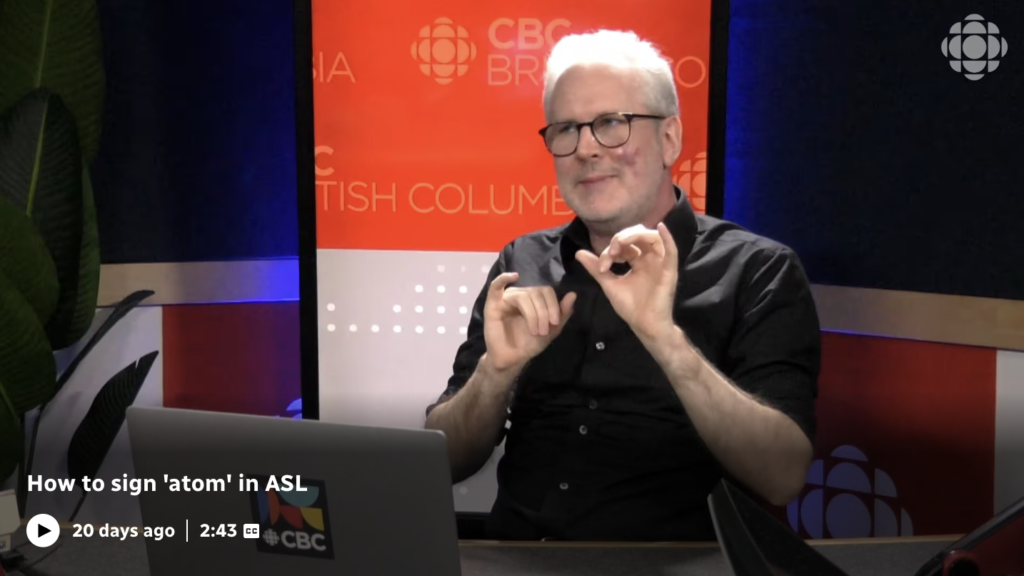
Deaf academics say a lack of ASL interpreters specialized in STEM is holding them back
Association representing interpreters in Canada says the profession is facing an overall shortage.
Campbell says the nature of ASL allows her to visually express information, like the way water flows, where rivers and wetlands connect and the position of the sun, while she's in the field. "The three-dimensional nature of ASL is such a benefit because, really, all STEM topics and disciplines are three dimensional," she said.
View full article video transcript: https://www.cbc.ca/radio/thecurrent/thursday-april-4-2024-full-transcript-1.7162278
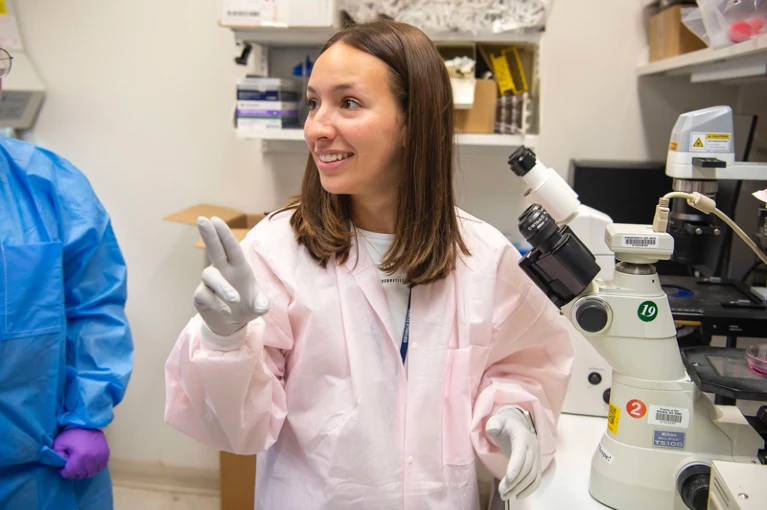
Communication barriers for a Deaf PhD student meant risking burnout
Megan Majocha is gearing up to complete her PhD. But developing a sign-language lexicon to help her succeed took an immense toll during her scientific research.
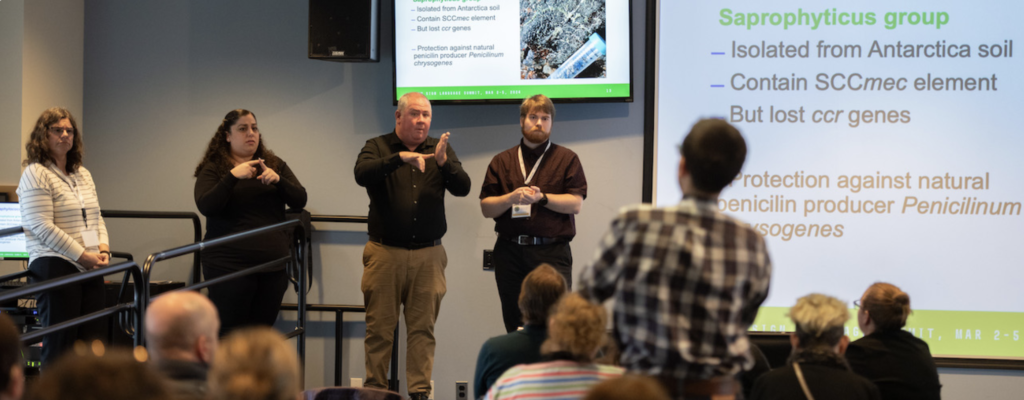
Global STEM Sign Language Summit promotes science education and careers
With nearly 300 registered attendees — both in person and online — it was one of the largest gatherings ever of signing professionals in the science, mathematics, and technology fields from around the world. The culmination of a year-long effort, funded by the National Science Foundation, the summit sought to explore how scientific concepts are communicated in different sign languages and how that impacts education and career outcomes for deaf people.
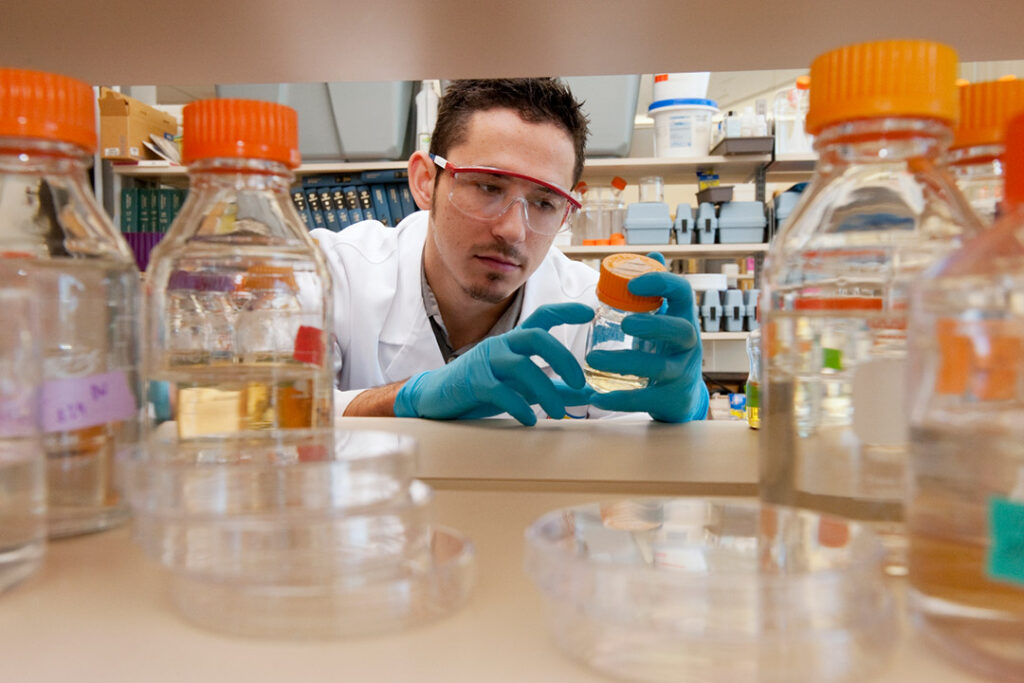
Rochester Bridges to the Doctorate partnership continues with grant to increase the number of deaf, hard-of-hearing scientists
A fruitful partnership between Rochester Institute of Technology’s National Technical Institute for the Deaf and University of Rochester has earned a funding boost to help meet the long-term goals of the Bridges to the Doctorate for Deaf and Hard-of-Hearing Students program.
A grant from the National Institutes of Health’s National Institute of General Medical Sciences will help increase the number of deaf and hard-of-hearing students entering Ph.D. programs in biomedical science fields and the number of deaf and hard-of-hearing students who successfully earn Ph.D.’s in biomedical sciences. This is the 10th year of the program.
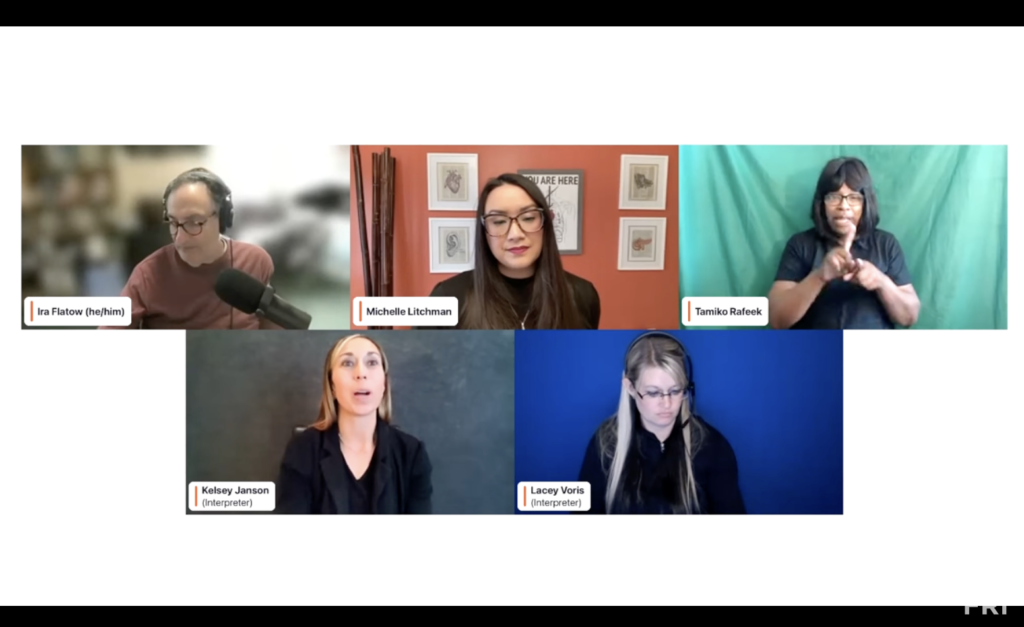
How A Deaf Advisory Group Is Changing Healthcare
University of Utah Health and Litchman partnered with the advocacy group Deaf Diabetes Can Together to create the hospital’s Deaf Community Advisory Board. The board, made up of Rafeek and other deaf patients, advised the hospital on how it could improve care for its patients with diabetes, a condition deaf people are twice as likely to have. Litchman plans to expand this model for other marginalized groups, including rural and Pacific Islander patients.
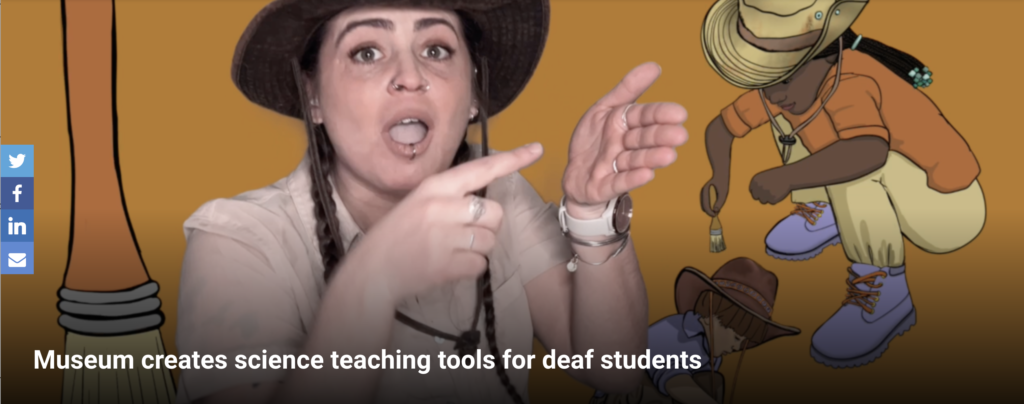
CU Museum of Natural History launches pilot for science-education tools using American Sign Language
A team at the University of Colorado Museum of Natural History is working with education and disability advocates to create science-education resources for deaf and hard-of-hearing children. Funded through a $22,800 grant from the CU Boulder Office for Outreach and Engagement, university staff are collaborating with educators and experts to develop free archeology, paleontology and biology lessons in American Sign Language, Spanish and English available to the public online.
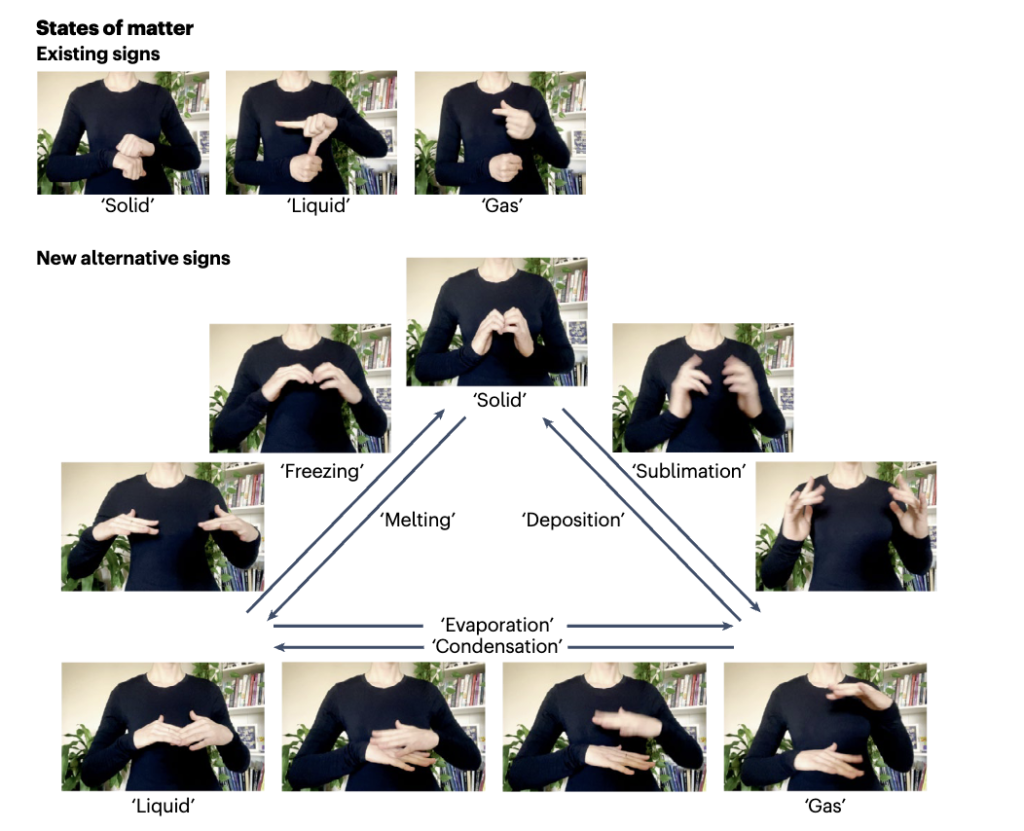
Op-Ed “Advancing scientific discourse in American Sign Language” published from Colin Lualdi, Barbara Spiecker, Alicia Wooten, and Kaitlyn Clark
Deaf scientists who use American Sign Language (ASL) need to be able to communicate specialized concepts with ease. Because deaf individuals — here we use ‘deaf’ broadly to refer to the full kaleidoscope of deaf experiences — have historically been under-represented in science, the linguistic capabilities of ASL have yet to be fully explored for scientific discourse. As a consequence, deaf scientists may not have the necessary tools to effectively articulate their work. Nowadays, with improved educational opportunities and communication access, there are more deaf ASL users who are experts in scientific fields.

STEM Stories with Deaf and Hard of Hearing Professionals
Welcome to STEM Stories with Deaf and Hard of Hearing Professionals. Hands & Voices, in partnership with a sponsorship from the NTID Regional STEM Center at RIT/NTID, created this interview series with Karen Putz sharing stories of Deaf/Hard of Hearing adults working in the STEM field. Each one of the videos below is a free-flowing conversation with a variety of questions about career, home, and fun!
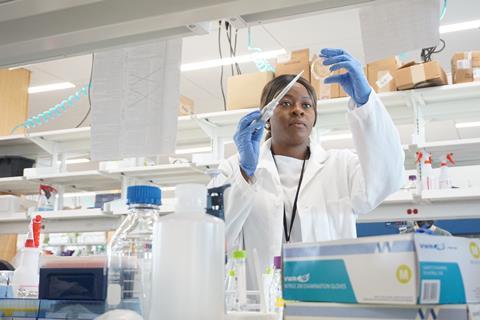
Meet the first deaf, Black woman to earn a Stem doctorate
Amie Fornah Sankoh, who grew up in Sierra Leone during the civil war and lost her hearing around three years old, is the first deaf, Black woman to receive a doctorate in any scientific, technical, engineering and maths discipline in the US, and possibly the world. She will graduate with a PhD from the University of Tennessee (UT) Knoxville’s Department of Biochemistry and Cellular and Molecular Biology on 20 May.

